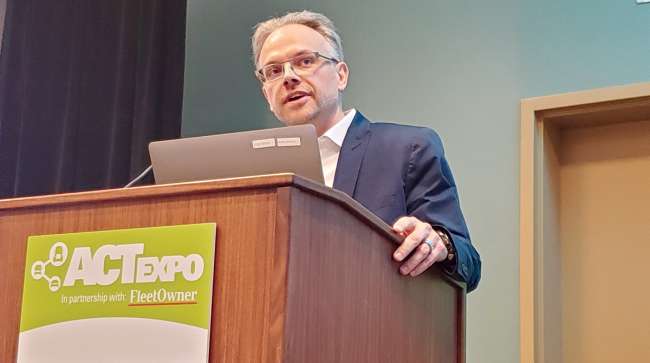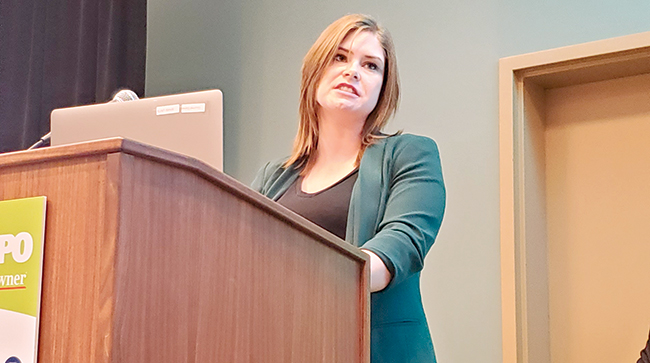Staff Reporter
Carriers Need to Use Data More Effectively, Experts Say

LONG BEACH, Calif. — Trucking firms are generating massive amounts of data, but they don’t necessarily have the expertise to handle and interpret it, said an expert on connectivity.
Amit Saini, a vice president at Noodle.AI, a company that seeks to reduce supply chain waste, told an audience at the annual Advanced Clean Transportation Expo that because of this, trucking firms and fleet leaders tend to rely on the “laws of averages.”
In other words, the firms do maintenance “every 50,000 miles, on average.”
Saini said business leaders and fleet managers need to use data better so that they can exceed average performance. And despite the arrival of software and smart technology, the trucking and transportation industries still waste massive resources.
“There is no shortage of inefficiency in the transportation world,” Saini said.
Saini spoke on a panel at ACT Expo at the Long Beach Convention Center on connected vehicles and original equipment manufacturer technology across all weight classes. Panelists said despite the deluge of data, the solution is better data, more connectivity and more points of connection.
Jason Krajewski, director of truck connectivity at Daimler Trucks North America, said connectivity expertise is vital for OEMs. Manufacturers, he said, need proficiency with a vast array of connected services, including electronic logging devices.
“We believe that connectivity should be integral to the vehicle,” Krajewski said. “It allows us … very rich data access to provide services from.”
Krajewski said Daimler Trucks has sold more than 200,000 connected trucks.
Daimler has offered remote diagnostics since 2011, Krajewski told the audience. And the company allows remote updates, features that allow fleet managers to make technical changes from desktops.

Hino's Rachel Suttle makes a presentation. (Jim Stinson/Transport Topics)
Rachel Suttle, manager of connected vehicle strategies at Hino Trucks, said the company offers telematics and remote diagnostics. She told the audience of about 200 that the company offers a Hino Benchmark Report, which compares all the Hino connected trucks so fleet managers can compare performance.
In the end, the flood of data and points of information have not deterred Hino from offering more connectivity. Hino Trucks offers Hino Insight telematics, which comes standard in new trucks, Suttle said. The tool allows the examination of fuel efficiency and emissions data, she said.
Nevertheless, panelists said data and information is a big responsibility, and can inundate carriers. Additionally, the data has to be stored, Krajewski said, perhaps on servers or data clouds.
“That stuff is not cheap,” said Krajewski. “You have to maintain that data.”



